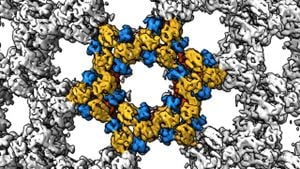A recent study conducted by researchers at the University of Jordan has unveiled significant associations between tinnitus and menstrual disorders among premenopausal women. This groundbreaking research highlights how prevalent conditions like tinnitus, which impacts about 14% of the global population, may be interconnected with menstrual issues commonly affecting women.
The study surveyed 558 participants, with findings showing 33% of them reported experiencing tinnitus, and 74.4% experienced dysmenorrhea, characterized by painful menstruation. Among those with menstrual irregularities, 20% reported menorrhagia, or heavy menstrual bleeding, presenting alarming insights about the interplay between these health issues.
Research indicates the prevalence of tinnitus and menstrual disorders can adversely affect the well-being of women, leading to considerable physical and psychological challenges. The authors stated, "Women experiencing menstrual problems are more likely to report tinnitus, which aligns with previous research." This reinforces the notion of exploring the symptoms of one condition concerning the other.
The methodology employed involved comprehensive questionnaires addressing demographic details, health history, and specific menstrual experiences. The results illuminated specific menstrual conditions, particularly secondary dysmenorrhea and menorrhagia, as significantly correlated with heightened tinnitus experiences. Statistical analyses revealed strong correlations, with p-values below thresholds indicating statistical significance.
Despite the established associations, the research areas remain vast, particularly concerning the underlying mechanisms uniting order and dysmenorrhea. The authors noted, "The evidence indicates we need to examine the link between psychosocial health and menstrual health and tinnitus more closely." Such statements convey the apparent complexity of these health conditions, highlighting psychological factors, such as anxiety and depression, as potential contributors to both disorders.
A multifaceted approach is necessary, and there could be modifiable lifestyle factors at play, such as stress management strategies, dietary habits, and regular physical activity. Iron deficiency has been frequently cited as significantly impacting both tinnitus severity and menstrual disorders; addressing nutritional health may mitigate some associated risks. The findings suggest future studies should investigate the prevalence of iron deficiency among populations experiencing menorrhagia and tinnitus concurrently.
The conclusion urges medical professionals to acknowledge the correlation between menstrual problems and tinnitus when treating patients. A multidisciplinary approach, combining gynecology and audiology, aligns with comprehensive healthcare perspectives, fostering collaborative strategies for managing complex interactions between reproductive and auditory health.
Through rigorous exploration, this research lays the groundwork for future inquiries linking menstrual irregularities and tinnitus—an often overlooked area contributing to women's health. Future research will be imperative for elucidation of the mechanisms at play, integrating clinical practices, and enhancing life quality for affected individuals.



